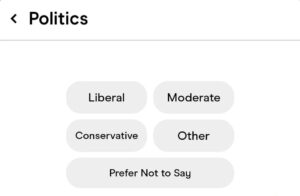While Gov. Rod Blagojevich’s State of the State confirmed that he does not want to raise taxes in order to balance Illinois’ budget, some legislators and tax reformers still see increasing income tax as part of the solution.
House Speaker Michael Madigan (D – Chicago) has looked into the issue but pushing for an increase in the 3 percent income tax rate “is not on the agenda right now,” said Michael Weir, a spokesperson for Madigan.
Madigan conducted a survey last summer of the 66 members of the House Democratic Caucus that yielded “very little support for a tax increase,” said Weir.
“The biggest obstacle is lack of support. The governor has been adamantly opposed to an increase in sales and income tax,” Weir said.
Income taxes fund state services like education, health care and public safety. In fiscal year 2007, about $8.9 billion was generated in income tax. The total budget for that year was $48.5 billion. Supporters of an increase say more money put into these services means more residents will benefit from them.
“The state needs to increase the personal income tax rate to 5 percent, an increase from its current level of 3 percent, to generate enough revenue to both fund services and provide tax relief to low- and middle-income families,” said Ralph Martire, executive director of the Center for Tax and Budget Accountability located in Chicago.
The state would collect about $5.6 billion in gross revenue if it increased its tax rate to 5 percent, according to a CTBA 2007 report.
Illinois’ tax rate is among the lowest in the country. Colorado, Michigan and Indiana tax at a flat rate of 4.63 percent, 3.9 percent and 3.4 percent, respectively.
Raising the income tax is not enough to solve Illinois’ fiscal problems, Martire said. “An increase needs to be coupled with tax relief for low-income families.” The state and federal Earned Income Tax Credit and the Family Tax Credit are two examples of available tax relief.
Tax relief for low-income families is necessary because the current tax system imposes an unfair tax burden on these families, said Martire. The wealthiest 20 percent of Illinoisians experience the most financial growth.
Over time, the amount of money they took home increased. The state’s tax system “does not respond to where growth goes,” said Martire.
The Illinois Constitution mandates a flat income tax. That means that whether a resident makes $100 million per year or $10,000 per year, everyone is taxed at the same percentage.
The majority of states, including Illinois neighbors Wisconsin, Iowa and Missouri, have a graduated tax rate that is proportionate to a household’s income. The more you make, the more you are taxed. Wisconsin income taxes range from 4.6 percent to 6.75 percent. Iowa ranges 0.36 percent to 8.98 percent.
“There needs to be a substantial reduction in cost and spending,” said David Eldridge, legislative director of The Taxpayers’ Federation of Illinois. The Federation believes a tax increase and reduction in spending must happen simultaneously for Illinois, which has the country’s fifth-largest economy.
Reforms in services such as Medicare and other health care and pension plans should be made before taxes are increased, he said. “[Illinois] could support a 1 percent increase only if spending is reduced.”
A 1 percent increase would generate about $2.9 billion in gross revenue.
But Martire doesn’t think cutting spending is the way to go.
“You can’t just cut your way out of debt,” he said. “We are a low-spending state. Economic growth has lagged behind. Despite all the advantages, we are falling behind the nation because we are under-investing in education” and other infrastructure needs.
Although there is some support in Springfield for a tax increase, “it would require a super majority [three-fifths] vote to pass legislation to override what would be the governor’s veto,” said Weir.
“Because of the governor’s threat, no one is willing to stick their neck out.”
“The bottom line is,” said Eldridge “we’re not doing anything to help the state if we just raise taxes.”
Categories:
Public
Tags:
budget house speaker michael madigan state taxes






Be First to Comment